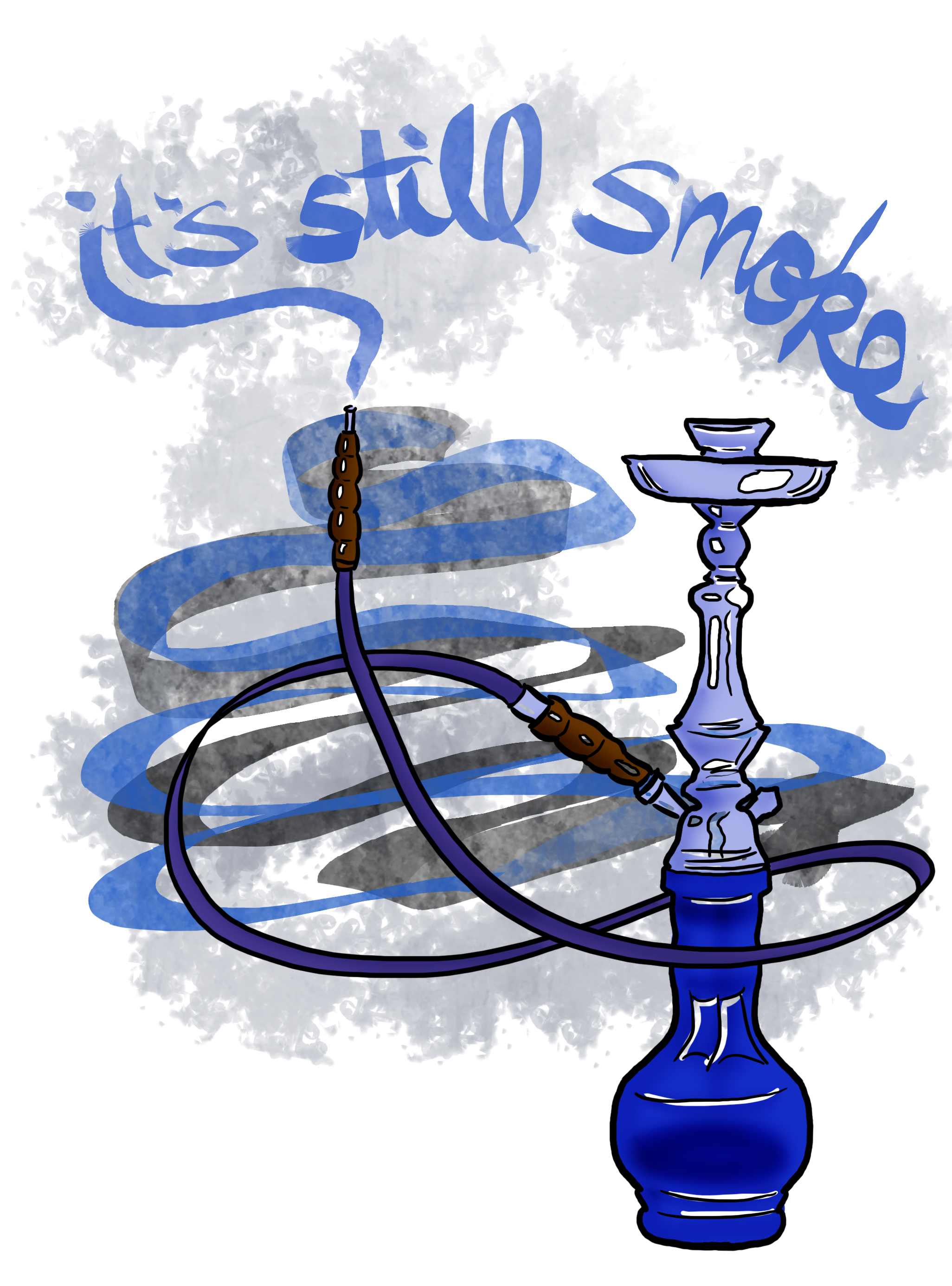
Flavoured tobacco, known as shisha, is smoked from a pipe connected to a device called a hookah. Shisha is known for its countless flavours: strawberry, watermelon, grape, peach, pear. Name any fruit and you can be guaranteed a hookah in that flavour. The hookah operates when heat from burning charcoal vaporizes the tobacco, thus producing smoke. The smoker then inhales it through a long tube and takes in the faint taste of their favourite flavour.
Is shisha harmful? Many people don’t seem to realize that it is. In fact, it can be more harmful than smoking cigarettes. During an hour-long shisha smoking session, the smoker will inhale 100 to 200 times the amount of smoke than that of one cigarette. Shisha and cigarettes are both composed of tobacco, but shisha is smoked longer and in larger amounts.
A common effect of this drug is temporary lightheadedness, often followed by a feeling of relaxation or fatigue. With more exposure, the smoker will get used to the dizziness and eventually stop feeling the effects.
“After a while of smoking [shisha], my throat always hurts,” says Laura-Rose Kennedy, a Concordia political science student. “I also find that there is a fine line between lightheadedness and headaches.”
Laura goes to hookah lounges about once every few months, as a social outing. “Smoke rings, however, are entertaining,” she adds with a chuckle.
The long-term effects of shisha can be extremely dangerous. Excessive smoking can lead to lung cancer due to the toxic substances in the smoke. These substances can also cause clogged arteries and heart disease. Pregnant women risk birth defects and a lower birth weight for the child. And of course, there is the risk of nicotine addiction and the exposure to second-hand smoke. Taking into consideration that hookahs are usually shared by two or more people, the risk of spreading diseases and illnesses shoots sky high.
Bernard Mahaise, a dentist from the Caledon Dental Care Clinic in Bolton, Ontario, talks about the effects that smoking shisha has on oral health.
“The short-term effects are the staining of teeth. Tobacco smoke contains countless toxins, so it’s the toxins that cause the damage. You’ll start with gingivitis (inflammation of the gums) which will lead to periodontitis (inflammation of the bone).” Mahaise explains that once periodontitis has settled on the bone, it will weaken and ultimately result in tooth loss.
“Changes in the oral mucosa due to toxins can lead to cancer,” he adds.
So why do students smoke shisha? For many, it is part of their culture. The hookah is believed to have originated from India and the Middle Eastern regions where it was used as a method of healing. The hazards of tobacco were later discovered but it still remains a huge cultural part of countries like Syria, Iran, Pakistan, India, Philippines and South Africa.
“I’m Middle Eastern, [smoking shisha] is almost like the Lebanese way of going for coffee,” says Maxim Korah, a Concordia mechanical engineering student. When asked if the risk of lung cancer worries him, Korah replies, “Not any more than beer is bad for my liver, like most things, you just have to be smart about how you use it.”
Why are young people suddenly starting to smoke more shisha? “Because it has a more accessible flavour, it’s probably similar to teenagers starting to drink alcohol with coolers,” says William Turcot, a software engineering student from ETS Montreal.
Turcot explains that he finds smoking is a pleasant and relaxing activity. However, he also takes caution. “Since I do a lot of cardio I’m afraid it might negatively affect it.”
Smoking shisha is a social, cultural and enjoyable activity for many. But like with every substance, it is crucial to be well informed about the risks you are taking when you decide to participate in such activities.
Concordia Arts students collaborate to produce a brand-new exhibit out of a recycled one
The students of the special topics art course ARTT 399 get a hands-on learning experience about sustainability in…




